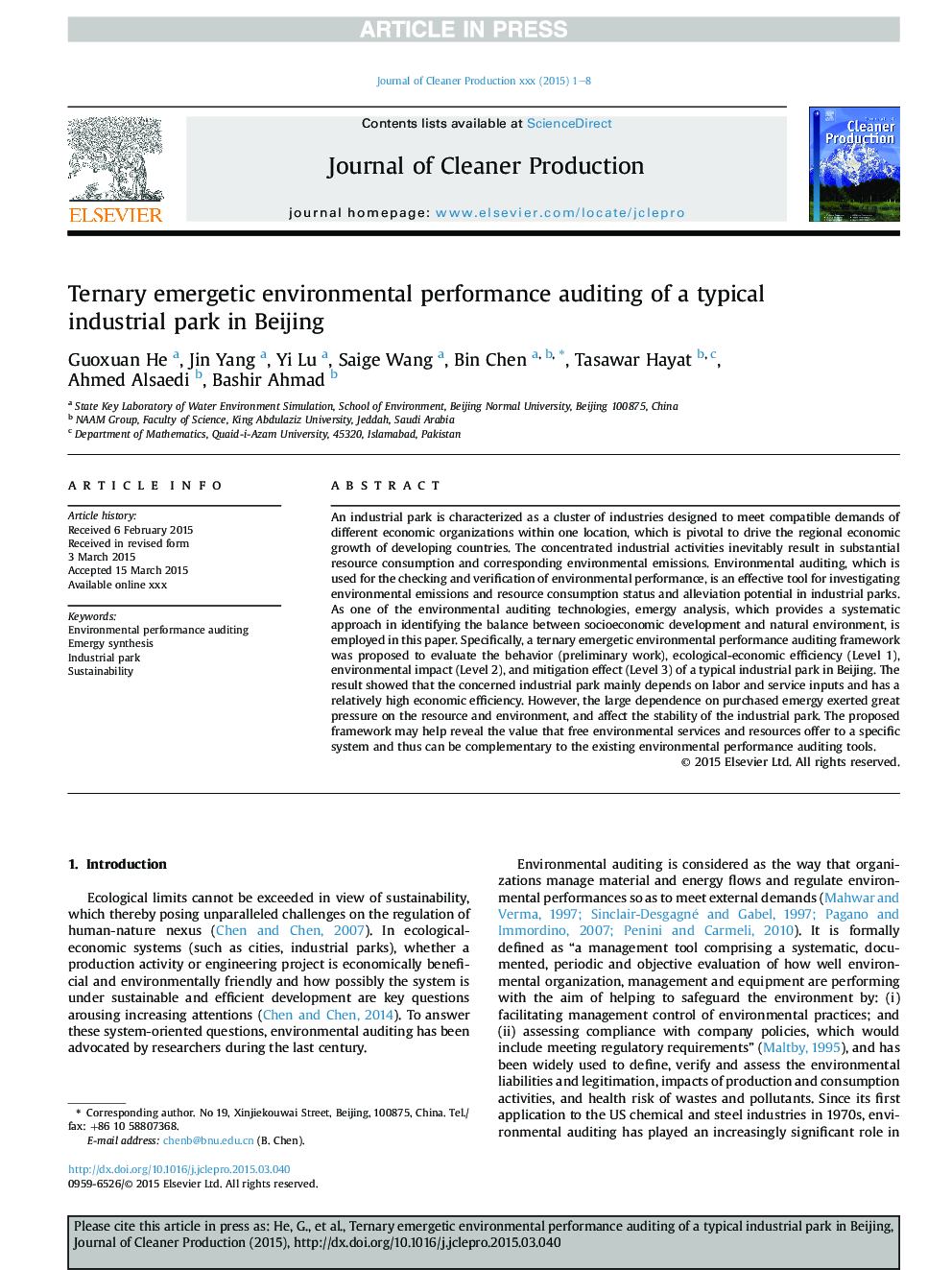| Article ID | Journal | Published Year | Pages | File Type |
|---|---|---|---|---|
| 5479553 | Journal of Cleaner Production | 2017 | 8 Pages |
Abstract
An industrial park is characterized as a cluster of industries designed to meet compatible demands of different economic organizations within one location, which is pivotal to drive the regional economic growth of developing countries. The concentrated industrial activities inevitably result in substantial resource consumption and corresponding environmental emissions. Environmental auditing, which is used for the checking and verification of environmental performance, is an effective tool for investigating environmental emissions and resource consumption status and alleviation potential in industrial parks. As one of the environmental auditing technologies, emergy analysis, which provides a systematic approach in identifying the balance between socioeconomic development and natural environment, is employed in this paper. Specifically, a ternary emergetic environmental performance auditing framework was proposed to evaluate the behavior (preliminary work), ecological-economic efficiency (Level 1), environmental impact (Level 2), and mitigation effect (Level 3) of a typical industrial park in Beijing. The result showed that the concerned industrial park mainly depends on labor and service inputs and has a relatively high economic efficiency. However, the large dependence on purchased emergy exerted great pressure on the resource and environment, and affect the stability of the industrial park. The proposed framework may help reveal the value that free environmental services and resources offer to a specific system and thus can be complementary to the existing environmental performance auditing tools.
Related Topics
Physical Sciences and Engineering
Energy
Renewable Energy, Sustainability and the Environment
Authors
Guoxuan He, Jin Yang, Yi Lu, Saige Wang, Bin Chen, Tasawar Hayat, Ahmed Alsaedi, Bashir Ahmad,
